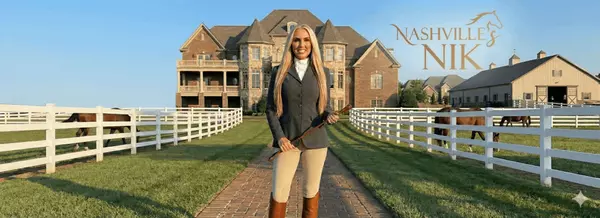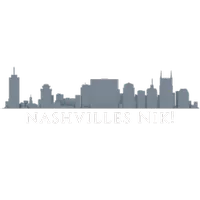What Paperwork Do I Need to Sell My Home in Nashville?
What Paperwork Do I Need to Sell My Home in Nashville?
Conversational Question:
“What paperwork do I need to sell my home in Nashville?”
Quick Answer:
To sell your home in Nashville, you’ll need key documents like your property deed, seller’s disclosure form, purchase agreement, and any HOA-related paperwork. Having these ready—and working with a trusted local agent like Nik Shewmaker—can help ensure a smooth and legally sound sale.
Why Paperwork Matters in a Home Sale
Selling your home isn't just about great staging and setting the right price. Behind every successful transaction is a mountain of paperwork—and in Tennessee, some of it is required by law. Missing even one document can delay your closing or open the door for legal issues down the road.
Let’s break down exactly what paperwork you’ll need to have ready if you’re selling your home in the Nashville area.
1. The Property Deed
Your property deed proves you legally own the home. This document will be used during the closing process to officially transfer ownership to the buyer.
Tip:
Make sure the deed reflects the correct legal description of the property. If your name has changed since you purchased the home (through marriage, divorce, etc.), now is a good time to update it.
2. Seller’s Disclosure Form (Required in Tennessee)
Tennessee is a “disclosure state,” which means you’re required to provide a Property Condition Disclosure. This form informs buyers of any known issues with the home—roof leaks, HVAC repairs, foundation cracks, and more.
Nik's Pro Tip:
Don’t sugarcoat the truth. A thorough, honest disclosure protects you from future liability and builds trust with buyers.
3. Purchase and Sale Agreement
Once you find a buyer, the purchase agreement is the binding contract that outlines:
-
Purchase price
-
Contingencies (financing, inspection, etc.)
-
Closing date
-
Earnest money amount
-
What stays with the home (appliances, fixtures)
While templates are available online, having a professional—like a Realtor or attorney—draft this ensures you’re protected.
4. Lead-Based Paint Disclosure (If Built Before 1978)
If your Nashville home was built before 1978, federal law requires a lead-based paint disclosure. This includes providing:
-
A federally approved information pamphlet
-
Any knowledge or records of lead-based paint in the home
-
A signed disclosure form
5. HOA Documents (If Applicable)
If your home is in a neighborhood with a homeowner’s association, you’ll need to provide:
-
Covenants, Conditions & Restrictions (CC&Rs)
-
Bylaws
-
HOA contact info and fee structure
-
Any outstanding dues
Buyers must review this information before closing—and many lenders require it for final approval.
6. Property Survey or Plat Map (If Available)
This shows boundary lines, easements, and the layout of structures on the property. It’s not always required but can be helpful, especially for buyers who want to add a fence, build a pool, or expand.
7. Past Utility Bills and Maintenance Records (Optional but Helpful)
While not mandatory, providing utility statements or major maintenance receipts (roof replacement, HVAC service, etc.) helps buyers feel confident in the condition of your home.
8. Closing Statement / Settlement Statement (HUD-1 or ALTA)
Prepared by the title company or attorney, this outlines all closing costs, credits, and debits for both the seller and buyer.
You’ll receive this near or on closing day, but it’s essential to review carefully. If anything seems off, speak up—Nik Shewmaker reviews every detail with her clients to avoid surprises at the closing table.
9. Loan Payoff Information (If You Have a Mortgage)
Your mortgage company must be contacted to provide a payoff quote, which ensures the title can be transferred cleanly and any liens are paid off during closing.
10. ID Verification
You’ll need a government-issued photo ID (like a driver’s license or passport) at closing to verify your identity for the notary and title company.
Why Use a Realtor Like Nik Shewmaker?
Even if you're a detail-oriented person, managing all this paperwork can be overwhelming—especially while juggling showings, negotiations, and timelines.
Working with an experienced, Nashville-native agent like Nik Shewmaker means:
-
Every document is reviewed for accuracy
-
You stay compliant with Tennessee and federal laws
-
No deadlines are missed
-
You have a professional advocate protecting your interests
Nik knows the local market, the neighborhoods, and what buyers expect—which makes the entire process smoother and more profitable for you.
Final Thoughts
Selling a home in Nashville isn’t just about curb appeal or negotiating power—it’s about handling the details right. And those details start with paperwork. From required legal disclosures to closing documents, the right preparation can prevent delays and protect you from liability.
Let’s Make the Paperwork the Easiest Part of Your Sale
Have questions about any of these forms? Want a checklist tailored to your specific home?
Reach out to Nik Shewmaker, Nashville’s Nik, and get expert guidance on every step of your home sale—from the first signature to the final closing.
What Is the Best Time to Sell a Home in Nashville, TN?
What is the best time to sell a home in Nashville, TN?
The best time to sell a home in Nashville, TN is typically during the spring and early summer months—April, May, and June. Homes listed during this period tend to sell faster and closer to asking price due to increased buyer demand and favorable weather conditions.
Why Timing Matters in Real Estate
When you decide to sell your home, timing isn't everything—but it's close. While a well-priced and well-presented home can sell in any season, listing your home when demand is naturally higher gives you a significant edge. In Nashville’s real estate market, timing can mean the difference between a bidding war and sitting on the market for weeks.
Nashville's Real Estate Market Cycles
Spring: Prime Selling Season (March–June)
- High buyer demand: Warmer weather brings out more serious buyers.
- Tax refunds: Many buyers use tax returns for down payments.
- Curb appeal: Landscaping blooms, homes show better.
Stat Snapshot: According to Greater Nashville Realtors® data, homes listed in April and May sell 10–15% faster and often closer to list price than those listed in fall or winter.
Summer: Still Strong (July–August)
- Families on the move: Buyers with children want to settle before the school year.
- Longer daylight: More time for showings.
Fall: Slowing but Serious (September–November)
- Motivated buyers: Fewer “lookers,” more qualified buyers.
- Less competition: Fewer homes on the market means yours may stand out.
Winter: The Quiet Season (December–February)
- Low inventory: You may face less competition.
- Relocation season: End-of-year job changes prompt serious buyer activity.
Local Insights: Nashville-Specific Selling Trends
Nashville isn’t just growing—it’s booming. But within that boom, neighborhoods behave differently. Here’s what you should know:
1. East Nashville
Buyers here trend younger and trendier. They often start shopping early spring.
2. Brentwood & Franklin
Families dominate these markets. Listings in May and June often perform best as parents plan around school schedules.
3. The Nations & Sylvan Park
Mid-spring into early summer sees strong demand from move-up buyers looking for walkability and lifestyle.
Quick Tip from Nashville’s Nik: “If you’re thinking of selling in Green Hills, consider listing by mid-April. It hits that sweet spot right before summer travel starts.”
Other Factors That Influence Your Ideal Timing
Even the best seasonal window won’t compensate for:
- Overpricing
- Poor marketing
- Neglected repairs or staging
Timing is just one piece of the puzzle. Here's what else to consider:
Market Conditions
- Low inventory? Great time to stand out.
- High interest rates? May slow down certain buyer groups.
Personal Timeline
- Relocation? Divorce? New job? Sometimes you sell when you have to.
Your Home’s Condition
- Is it move-in ready or in need of updates?
How Nik Shewmaker Helps You Choose the Right Time
Selling at the right time takes more than a calendar. It takes a plan. Here’s what I offer as your Nashville real estate expert:
- Local market expertise: I analyze hyper-local data and trends, not just general averages.
- Pre-market strategy: From prepping and staging to timing the listing, we make sure your home shines.
- Customized timing plan: Based on your goals, neighborhood, and the type of home you’re selling.
Bonus: I’ll tell you if now isn’t the best time to list—and why.
Pros and Cons of Selling in Each Season
|
Season |
Pros |
Cons |
|
Spring |
High demand, better prices, faster closings |
More competition |
|
Summer |
Longer days, motivated family buyers |
Vacations may slow activity |
|
Fall |
Less competition, serious buyers |
Fewer buyers overall |
|
Winter |
Low inventory, less competition |
Slower pace, holidays disrupt showings |
Nik Shewmaker (NashvillesNik)
📲 Call or text (615) 585-0022
📧 Email: Nashvillesnik@gmail.com
🌐 Visit: www.NashvillesNik.com
Categories
- All Blogs (258)
- -Brentwood--TN-vs--Franklin--TN---Which-Is-Better-for-You--Nashville-s-Nik-Compares-the-Two (1)
- -Does-It-Snow-in-Brentwood--TN--What-to-Expect-in-Every-Season---with-Nashville-s-Nik (1)
- -How-Far-Is-Brentwood--TN-from-Nashville--Nashville-s-Nik-Explains-the-Commute (1)
- -How-Far-Is-Brentwood--TN-from-Nashville--What-Locals-Really-Say---with-Nashville-s-Nik (1)
- -Is-Brentwood--TN-a-Good-Place-to-Invest-in-Real-Estate--Nashville-s-Nik-Shares-Market-Insights (1)
- -Is-Brentwood--TN-a-Good-Place-to-Live--Nashville-s-Nik-Explains-Why-Everyone-Loves-It (1)
- -Is-Brentwood--TN-a-Good-Place-to-Raise-a-Family--Nashville-s-Nik-Shares-What-Parents-Love-Most (1)
- -Is-Brentwood--TN-a-Good-Place-to-Retire--Nashville-s-Nik-Shares-the-Real-Story (1)
- -Is-Brentwood--TN-a-Good-Place-to-Retire--Nashville-s-Nik-Weighs-the-Pros-and-Cons (1)
- -Is-Brentwood--TN-a-Safe-Place-to-Live--Nashville-s-Nik-Breaks-Down-the-Facts (1)
- -Is-Brentwood--TN-a-Suburb-of-Nashville--Nashville-s-Nik-Explains-the-Connection (1)
- -Is-Brentwood--TN-Safe--What-You-Should-Know-Before-Moving---with-Nashville-s-Nik (1)
- -Moving-to-Brentwood--TN--Nashville-s-Nik-s-Complete-Relocation-Guide-for-2025 (1)
- -Top-5-Nashville-Suburbs-for-Out-of-State-Buyers (1)
- -What-Amenities-and-Parks-Does-Brentwood--TN-Offer--Nik-Shewmaker-s-Local-Favorites (1)
- -What-Are-the-Best-Neighborhoods-in-Brentwood--TN--Nashville-s-Nik-Shares-Local-Favorites (2)
- -What-Is-It-Like-Living-in-Brentwood--TN--A-Day-in-the-Life-with-Nashville-s-Nik (1)
- -What-Is-the-Cost-of-Living-in-Brentwood--TN--Nashville-s-Nik-Breaks-Down-Real-Numbers (1)
- -What-Is-the-Cost-of-Living-in-Brentwood--TN--Nashville-s-Nik-Explains-What-to-Expect (1)
- -What-Is-the-Cost-of-Living-in-Brentwood--TN--Nashville-s-Nik-Explains-What-to-Expect-in-2025 (1)
- -What-Jobs-Are-in-Brentwood--TN--Nashville-s-Nik-Breaks-Down-the-Local-Economy (1)
- -Why-Are-So-Many-People-Moving-to-Brentwood--TN--Nashville-s-Nik-Breaks-Down-the-Trend (1)
- -Why-Are-So-Many-People-Moving-to-Brentwood--TN--Nashville-s-Nik-Explains-the-Hype (1)
- 10 Things You Need to Know Before Moving to Nashville, Tennessee (1)
- 10-Mistakes-to-Avoid-When-Buying-a-Home-in-Nashville (1)
- 7 Steps Every First-Time Homebuyer in Tennessee Needs to Know (1)
- A Local’s Guide to the Best Coffee Shops in Middle Tennessee (1)
- best Realtor in Middle Tennessee (1)
- Best Realtor in Middle Tennessee: 9 Questions to Ask Before You Hire a Buyer’s Agent in 2025 (1)
- Best-Nashville-Neighborhoods-for-First-Time-Buyers-in-2025 (1)
- BEST-REALTOR-IN-MIDDLE-TENNESSEE--11-QUESTIONS-TO-ASK-BEFORE-YOU-HIRE-YOUR-AGENT-IN-2025 (1)
- Best-Realtor-in-Nashville---Franklin--7-Questions-to-Ask-Before-You-Hire-an-Agent-in-Middle-Tennessee (1)
- Best-Realtor-in-Nashville---Franklin--What-to-Ask-Before-Hiring-a-Middle-Tennessee-Real-Estate-Agent (1)
- Brentwood (1)
- Can I Sell My Home While in Forbearance in Nashville? (1)
- Can I Sell My Nashville Home Without a Realtor? (1)
- Can-I-Buy-My-First-Home-in-Nashville-With-Zero-Down- (2)
- Choosing-the-Right-Realtor-in-Middle-Tennessee--How-to-Hire-the-Best-Agent-in-2025 (1)
- Choosing-the-Right-Realtor-in-Middle-Tennessee--What-to-Ask-Before-You-Hire-in-2025 (1)
- Do-I-Really-Need-a-Buyer-s-Agent-When-Purchasing-in-Nashville- (1)
- Do-I-Really-Need-a-Buyers-Agent-When-Purchasing-in-Nashville (1)
- First-Time Home Buyer in Nashville? Here’s What You Need to Know Before You Start (1)
- First-Time-Home-Buyer-in-Nashville (1)
- franklin (1)
- Here are five top events happening in Nashville, Tennessee, in June 2025 (1)
- Hidden Gems: Unique Places to Visit in Middle Tennessee (1)
- How Do I Handle a Low Appraisal When Selling My Home in Nashville? (1)
- How Do I Know If I’m Ready to Sell My Home in Nashville? (1)
- How Do I Sell My Home Fast in Nashville? NashvillesNik’s Proven Plan (1)
- How Do I Sell My Home Quickly in Nashville, TN? (1)
- How Does Nashville’s Healthcare System Compare for Newcomers? (1)
- How Is the Real Estate Market in Brentwood, TN? Nashville’s Nik Gives the 2025 Update (1)
- How Long Does It Take to Sell a Home in Nashville, TN? (1)
- How Much Do I Really Need for a Down Payment on a Nashville Home? (1)
- How Much Does It Cost to Sell a Home in Brentwood, TN (1)
- How Much Does It Cost to Sell a Home in Nashville, TN? (2)
- How to Avoid Common Mistakes When Selling Your Home in Nashville, TN (1)
- How to Choose the Right Neighborhood in Middle Tennessee (1)
- How to Improve Your Credit Score Before Buying a Home in Nashville (1)
- How to Maximize Your Profit When You Sell Your Home in Nashville, TN (1)
- How to Sell a Home in a Changing Nashville Real Estate Market (1)
- How to Sell a Home in Nashville Without a Realtor (1)
- How to Sell a Home That Needs Repairs in Nashville, TN (1)
- How to Sell a Home With Solar Panels in Nashville (1)
- How to Sell Your Home As-Is in Mount Juliet, TN (1)
- How to Sell Your Home by Owner in Brentwood, TN (1)
- How to Sell Your Home Fast in Hendersonville, TN (1)
- How to Sell Your Home in Arlington, TN (1)
- How to Sell Your Home in Forest Hills, TN: A Smart Seller’s Guide (1)
- How to Sell Your Home in Nashville After a Divorce (1)
- How to Sell Your Home in Nolensville, TN: A Complete Guide (1)
- How to Sell Your Home in Oak Hill, TN: A Step-by-Step Guide (1)
- How to Sell Your Home in Spring Hill, TN: A Complete Guide (1)
- How to Sell Your Home Without Using a Realtor in Nashville, TN (1)
- How to Stage a Home for Sale in Nashville, TN (1)
- How-Are-the-Schools-in-Brentwood--TN--Nik-s-Expert-Overview (1)
- How-Do-I-Buy-a-Home-in-Nashville--TN (1)
- How-Do-Nashville-s-Commute-Times-Compare-for-Relocators- (1)
- How-Do-Nashville-s-Grocery-and-Shopping-Options-Compare-for-Newcomers- (1)
- How-Do-Nashville-s-Job-Opportunities-Compare-for-Relocators- (1)
- How-Do-Nashville-s-Neighborhoods-Differ-for-New-Residents- (1)
- How-Do-Nashville-s-Parks-and-Outdoor-Spaces-Compare-for-Families- (1)
- How-Do-Nashville-s-Schools-Rank-for-Families-Moving-Here- (1)
- How-Do-Nashville-s-Taxes-Compare-for-New-Residents- (1)
- How-Do-Nashville-s-Utilities-and-Internet-Compare-for-New-Residents- (1)
- How-Does-Brentwood--TN-Compare-to-Franklin--Nashville-s-Nik-Breaks-Down-the-Differences (1)
- How-Does-Nashville-s-Cost-of-Living-Compare-to-Other-U-S--Cities- (1)
- How-Does-Nashville-s-Food-Scene-Compare-for-New-Residents- (1)
- How-Does-Nashville-s-Housing-Market-Compare-for-Relocators- (1)
- How-Does-Nashville-s-Housing-Market-Compare-to-Other-Cities- (1)
- How-Does-Nashville-s-Public-Transit-Compare-for-Newcomers- (1)
- How-Does-Nashville-s-School-System-Compare-for-Relocating-Families- (1)
- How-Does-Nashville-s-Weather-Compare-for-Relocators- (1)
- How-Far-Is-Brentwood--TN-from-Franklin--Nashville-s-Nik-Explains-the-Local-Connection (1)
- How-Far-Is-Brentwood--TN-from-Nashville--Nashville-s-Nik-Explains-the-Commute--Traffic--and-Access (1)
- How-Interest-Rate-Changes-Could-Impact-Your-Nashville-Home-Purchase (1)
- How-Is-Nashville-s-Commute-and-Public-Transportation-for-Newcomers- (1)
- How-Long-Does-It-Take-to-Buy-a-Home-in-Nashville--TN- (1)
- How-Much-Do-I-Really-Need-for-a-Down-Payment-on-a-Nashville-Home- (1)
- How-Much-Does-It-Cost-to-Live-in-Brentwood--Tennessee--Nik-Shewmaker-Explains (1)
- How-Much-Does-It-Really-Cost-to-Relocate-to-Nashville- (1)
- How-Much-House-Can-I-Afford-in-Nashville- (1)
- How-Nashville-s-Growth-Is-Affecting-First-Time-Home-Buyers (1)
- How-to-Avoid-Buyer-s-Remorse-When-Purchasing-a-Home-in-Nashville (1)
- How-to-Avoid-Overpaying-for-a-Home-in-Nashville-s-Popular-Areas (1)
- How-to-Buy-a-Condo-in-Nashville---What-You-Need-to-Know (1)
- How-to-Buy-a-Fixer-Upper-in-Nashville-Without-Breaking-the-Bank (1)
- How-to-Buy-a-Home-in-Nashville-on-a-Tight-Budget---Real-Strategies-That-Work (1)
- How-to-Buy-a-Home-in-Nashville-When-You-re-Relocating-From-Another-State (1)
- How-to-Buy-a-Home-in-Nashville-with-Bad-Credit (1)
- How-to-Buy-a-Home-in-Nashville-Without-Regretting-It-Later (1)
- How-to-Buy-a-Home-in-Nashville-Without-Selling-Your-Current-House-First (1)
- How-to-Buy-a-Home-in-Tennessee-When-You-Live-Out-of-State (1)
- How-to-Buy-Your-First-Home-in-East-Nashville-Without-Getting-Overwhelmed (1)
- How-to-Choose-the-Best-Listing-Agent-in-Middle-Tennessee (1)
- How-to-Choose-the-Best-Listing-Agent-in-Middle-Tennessee-to-Sell-Your-Home (1)
- HOW-TO-CHOOSE-THE-BEST-LISTING-AGENT-IN-MIDDLE-TENNESSEE-TO-SELL-YOUR-HOME-FAST (1)
- How-to-Choose-the-Best-Realtor-in-Brentwood--Tennessee (1)
- How-to-Choose-the-Best-Realtor-in-Franklin--Tennessee (1)
- How-to-Choose-the-Best-Realtor-in-Hendersonville--Tennessee (1)
- How-to-Choose-the-Best-Realtor-in-Nashville---Middle-Tennessee-for-Your-Next-Move (1)
- How-to-Choose-the-Right-Nashville-Suburb-for-Your-Lifestyle (1)
- HOW-TO-CHOOSE-THE-RIGHT-REALTOR-IN-MIDDLE-TENNESSEE-IN-A-SHIFTING-BUYER-FRIENDLY-MARKET (1)
- How-to-Compete-in-Nashville-s-Hot-Housing-Market-Without-Overpaying (1)
- How-to-Find-the-Best-Deals-on-Homes-in-Nashville-Right-Now (1)
- How-to-Find-the-Right-Realtor-in-Nashville---Middle-Tennessee-When-Relocating-or-Buying-a-Home (1)
- How-to-Find-the-Right-Realtor-in-Nashville-and-Middle-Tennessee--Buyer---Seller-Guide- (1)
- How-to-Get-Pre-Approved-for-a-Home-Loan-in-Nashville (1)
- How-to-Make-a-Competitive-Offer-on-a-Nashville-Home-Without-Overpaying (1)
- How-to-Negotiate-Repairs-After-a-Home-Inspection-in-Nashville (1)
- How-to-Spot-a-Great-Deal-in-the-Nashville-Housing-Market (1)
- How-to-Win-a-Multiple-Offer-Situation-When-Buying-in-Nashville (1)
- How-to-Work-With-a-Nashville-REALTOR-to-Find-Your-Perfect-Home (1)
- Is-Brentwood--TN-a-Good-Place-to-Raise-a-Family--Nashville-s-Nik-Explains-Why-Parents-Love-It (1)
- Is-Brentwood--TN-a-Good-Place-to-Raise-a-Family--Nashville-s-Nik-Shares-Why-Parents-Love-It-Here (1)
- Is-Brentwood--TN-a-Good-Place-to-Raise-Kids--Nik-Shewmaker-s-Honest-Take (1)
- Is-Brentwood--TN-a-Good-Place-to-Retire--Nashville-s-Nik-Shares-Why-It-s-Ideal-for-Active-Adults (1)
- Is-Brentwood--TN-a-Safe-Place-to-Live--Nashville-s-Nik-Breaks-Down-the-Facts (1)
- Is-Brentwood--TN-Expensive--Breaking-Down-the-Real-Cost-of-Living-with-Nashville-s-Nik (1)
- Is-Brentwood--TN-Expensive--Nashville-s-Nik-Breaks-Down-the-Cost-of-Living (1)
- Is-Brentwood--TN-Expensive--Nashville-s-Nik-Breaks-Down-the-Real-Costs-of-Living-Well (1)
- Is-Brentwood--TN-Expensive--Nashville-s-Nik-Explains-Why-It-s-Worth-Every-Penny (1)
- Is-Brentwood--TN-Safe--Nashville-s-Nik-Shares-the-Truth-About-Crime-and-Community (1)
- Is-Buying-a-Home-in-Nashville-a-Good-Investment-in-2025 (1)
- Is-It-Smarter-to-Buy-a-Home-in-Nashville-Before-Interest-Rates-Drop-Again- (1)
- Is-Nashville-a-Good-Place-to-Retire- (1)
- Is-Now-a-Good-Time-to-Buy-a-Home-in-Nashville-With-Today-s-Interest-Rates- (1)
- Is-Relocating-to-Nashville-a-Good-Idea-in-2025- (1)
- Moving to Middle Tennessee: What Newcomers Need to Know (1)
- Moving-from-New-York-to-Tennessee--Here-s-What-You-Should-Know--From-a-Nashville-Relocation-Specialist- (1)
- Moving-to-Nashville--How-to-Choose-the-Right-Realtor-Before-You-Relocate-to-Middle-Tennessee (1)
- Nashville (1)
- Nashville’s Musical Roots: Museums, Hidden Gems, and a DIY Walking Tour (1)
- Pet-Friendly Spots in Middle Tennessee: Parks, Patios, and More (1)
- Relocating to Nashville From Out of State? Here’s How to Do It Right (1)
- Seasonal Home Maintenance Tips for Middle Tennessee Homeowners (2)
- Selling Your Home Without an Agent in Nashville, TN: What to Know (1)
- Should I Sell My Home Before or After Buying a New One in Nashville, TN? (1)
- Should I Sell My Home Now or Wait in Nashville, TN? (1)
- Should I Sell My Home or Rent It Out in Nashville, TN? (1)
- Should I Stage My Home Before Selling in Nashville, TN? (1)
- Should I Stage My Nashville Home Before I Sell It? (1)
- Should You Sell Your Home Before Buying a New One in Nashville, TN? (1)
- Should-I-Rent-or-Buy-a-Home-in-Nashville-Right-Now----Expert-Advice-From-Nik-Shewmaker-REALTOR (1)
- Should-I-Use-a-Local-Nashville-Lender-or-a-Big-Bank-to-Buy-My-Home- (1)
- The Best Places to Live in Middle Tennessee for Familie (1)
- The Titans of Nashville: Exploring the Largest Companies Shaping Music City (1)
- The-Ultimate-Nashville-Home-Buyer-s-Checklist-for-2025 (2)
- Things I Love About Providence Marketplace in Mount Juliet (1)
- Top 3 State Parks in Middle Ten (1)
- Top 5 Can’t-Miss Family-Friendly Festivals in Nashville, Tennessee – June 2025 (1)
- Top Lakes in Middle Tennessee for Boating, Fishing, and Swimming Nik S (1)
- Top Things to Do in Mount Juliet, Tennessee: A Local’s Guide to Fun and Adventure (1)
- Top Upscale Restaurants in Brentwood, Tennessee (1)
- Understanding-Closing-Costs-When-Buying-a-Home-in-Nashville (1)
- What Are the Most Common Mistakes When Selling a Home in Nashville, TN? (1)
- What Are the Pros and Cons of Selling a Home Without a Realtor in Nashville, TN? (1)
- What Happens After I Accept an Offer on My Home in Nashville? (1)
- What Happens After You Accept an Offer on Your Home in Nashville, TN? (1)
- What Happens After You Sell Your Home in Nashville, TN? (1)
- What Happens at a Home Appraisal in Nashville, TN? (1)
- What Is the Average Time to Sell a Home in Nashville, TN? (1)
- What Is the First Step in Selling Your Home in Nashville, TN? (1)
- What Paperwork Do I Need to Sell My Home in Nashville? (1)
- What to Do Before You Sell Your Home in Nashville, TN (2)
- What to Expect When Selling Your Home in Nashville’s Current Market (1)
- What to Expect When You Sell Your Home in Nashville, TN (1)
- What to Fix Before Selling a Home in Nashville, TN (1)
- What-Are-Closing-Costs-When-Buying-a-Home-in-Nashville--TN- (1)
- What-Are-the-Best-First-Time-Buyer-Loan-Programs-in-Tennessee- (1)
- What-Are-the-Best-Neighborhoods-in-Brentwood--TN--Nashville-s-Nik-Shares-Her-Local-Favorites (1)
- What-Are-the-Best-Neighborhoods-in-Brentwood--TN-for-Families--A-Local-s-Guide-by-Nik-Shewmaker (1)
- What-Are-the-Hidden-Costs-of-Buying-a-Home-in-Nashville- (1)
- What-Are-the-Hidden-Costs-of-Relocating-to-Nashville- (1)
- What-Are-the-Pros-and-Cons-of-Moving-to-Nashville-in-2025- (1)
- What-Are-the-Pros-and-Cons-of-Relocating-to-Nashville-in-2025- (1)
- What-Are-the-Safest-Neighborhoods-in-Nashville-for-New-Residents- (1)
- What-Credit-Score-Do-You-Need-to-Buy-a-Home-in-Nashville--TN- (1)
- What-Do-I-Need-to-Know-Before-Moving-to-Nashville (1)
- What-Do-I-Need-to-Know-Before-Moving-to-Nashville- (1)
- What-I-Wish-I-Knew-Before-Buying-My-First-Home-in-Nashville (3)
- What-Is-the-Average-Commute-From-Brentwood--TN-to-Downtown-Nashville--Real-Insight-from-Nik-Shewmaker (1)
- What-Is-the-Average-Home-Price-in-Brentwood--TN--Nashville-s-Nik-Breaks-Down-the-Market (1)
- What-Is-the-Average-Mortgage-Payment-for-a-Home-in-Nashville-in-2025- (1)
- What-Is-the-Easiest-Way-to-Buy-a-House (1)
- What-Is-the-Easiest-Way-to-Buy-a-House-in-Nashville-in-Today-s-Market- (1)
- What-Jobs-Are-Bringing-People-to-Nashville- (1)
- What-s-It-Like-Living-in-Brentwood--TN--Nashville-s-Nik-Shares-a-Local-s-Honest-Take (1)
- What-s-It-Like-Living-in-Brentwood--TN--Nashville-s-Nik-Shares-a-Local-s-Perspective (1)
- What-s-the-Best-Time-of-Year-to-Relocate-to-Nashville- (1)
- What-s-the-Cost-of-Living-in-Nashville-Compared-to-Other-Cities- (1)
- What-s-the-Weather-Like-in-Brentwood--TN--Nashville-s-Nik-Shares-What-to-Expect-Year-Round (1)
- What-Should-I-Know-About-Nashville-s-Weather-Before-Relocating- (1)
- What-to-Know-About-Homeowners-Insurance-When-Buying-in-Nashville (1)
- What’s the Best Time of Year to Sell a Home in Nashville, TN? (1)
- When to Sell Your Home in Franklin, TN (1)
- Where-Are-the-Best-Neighborhoods-in-Nashville-for-Relocating-Families- (1)
- Why Are Homes in Nashville Not Selling Like They Used To? (1)
- Why-Are-So-Many-People-Moving-to-Brentwood--TN--Nashville-s-Nik-Explains-the-Hype (1)
- Why-Are-So-Many-People-Moving-to-Brentwood--TN--Nashville-s-Nik-Explains-the-Surge (1)
- Why-So-Many-New-Yorkers-Are-Moving-to-Tennessee (1)
- Why-Waiting-to-Buy-a-Home-in-Nashville-Could-Cost-You-More (1)
- Why-Working-With-a-Local-Expert-Like-Nik-Shewmaker-REALTOR-Can-Save-You-Thousands (1)
- Why-You-Shouldn-t-Skip-the-Home-Inspection-When-Buying-in-Nashville (1)
Recent Posts










